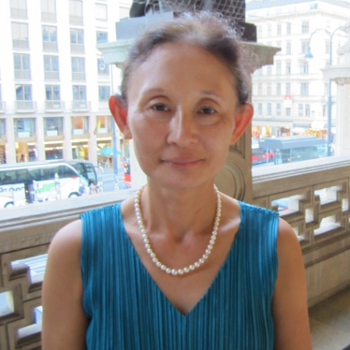“Mozart’s music is beautiful, but playing Rossini is pure fun,” a young violinist told me recently. Listening to the overture to L'italiana in Algeri, composed by a 21-year-old Rossini, I was reminded of her comment, as the Metropolitan Opera's strings and woodwinds, with occasional percussion, performed the music full of lithe and colorful melodies. The overture began with plaintive winds but soon gathered momentum as strings joined in. Maestro James Levine conducted with both sensitivity and vigor, pushing the tempo to bring the overture to an exciting close, and we were off.
The plot is convoluted but it is essentially a “rescue” opera. An Italian woman uses her charm and wit to outsmart a “Turkish” Bey in Algiers and rescue her captive lover. The emphasis is not so much on the story as on the singing... and there is a lot of it, arias, duets and busy ensembles, punctuated by recitatives and choruses. It is a battle of sexes, with women triumphing, but the casual reference to the “Turks” as barbarians and the exotic culture depicted in a simplistic manner is reminiscent of a not so distant past when we had no inkling of the geopolitical tensions of the 21st-century world. The opera is truly a throwback to the good old days.
Jean-Pierre Ponnelle’s 1973 production returned with his set and costumes essentially unchanged. An archway in neutral beige frames the set, with steps leading to the main stage. Curtains, both solid and transparent, open and close to reveal scenic backgrounds such as the Bey’s palace and the sea. The simple and straightforward staging helps move the action efficiently and quickly.
Of the seven principal singers, three were making Met debuts, including Marianna Pizzolato replacing Eliazabeth DeShong as short notice as the Italian woman of the title, Isabella. An experienced Rossini singer, Pizzolato's voice is relatively small and one longed for a richer and more powerful middle voice. She was, however, a good artist with formidable technique and aplomb to negotiate Rossini’s challenging music. Her warm voice opened up to thrilling high notes and she displayed a fine sense of comic acting to dominate proceedings. Her coloratura passages were solid and effortless.
Lindoro, her Italian lover, was sung by another debutant, René Barbera. With a disarming stage presence, he impressed with his easy delivery and fine legato. His voice never lost its luscious, bright, penetrating quality as he moved about the stage singing his arias and trading musical barbs with his colleagues. As Mustafà, the bey, Ildar Abdrazakov was enjoying himself a little too much, and his constant mugging and exaggerated gestures detracted from other singers’ performances. He was in excellent voice throughout, however, his youthful and clear bass appropriate for the lecherous tyrant.
As Isabella’s “uncle” Taddeo, Nicola Alaimo was another standout, with an ample and sonorous voice. He sang strongly but with smooth legato to showcase real Italian vocal style. His duet with Isabella in Act 1 was an early highlight. It was nice to see the Met veteran Dwayne Croft, his voice and acting polished, as Mustafà’s captain Haly. Young soprano Ying Fang was impressive in her brief appearances as Mustafà’s wife Elvira. Hers is the first solo voice heard in this opera, and she stood out in ensemble with her clear and mellifluent sound soaring high.
The Met orchestra and chorus were on top form, impressive. Bryan Wagorn provided a crystal clear and expressive continuo on the harpsichord, and the solo cello that accompanied Isabella’s Act II aria “Per lei che adoro” was breathtaking in its beauty. Maestro Levine kept a firm handle of the intricate musical lines, including the complicated ensembles.
It was an evening to hark back to the “good old days”, both in the now not so politically correct subject matter of the opera and its dated production. But the music is of supreme importance in Rossini opera, and the Met did itself proud to present a fine cast of singers for this exuberant revival. We all left with a smile on our faces.




